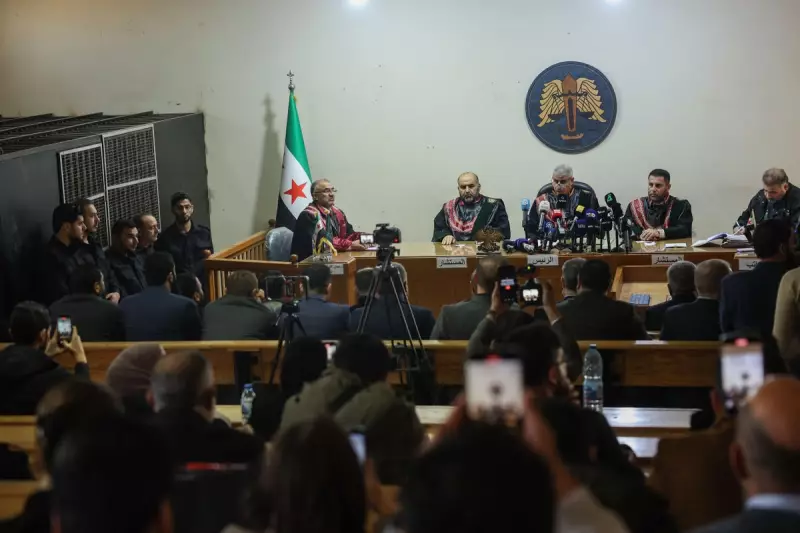
In a landmark move for a nation grappling with its recent past, Syria has opened its first public trial concerning the deadly sectarian violence that erupted in its coastal provinces earlier this year.
The Court Proceedings Begin
The trial commenced on Tuesday, 18 November 2025, at Aleppo's Palace of Justice, with state media broadcasting the proceedings. This initial hearing involved 14 defendants, a small fraction of the 563 suspects referred to the judiciary by a government-led investigating committee.
The group in the dock was split evenly, with seven defendants identified as loyalists to ousted President Bashar Assad, and the other seven being members of the new government's security forces. A key moment in the televised session saw the judge questioning whether the accused were military or civilian.
The Roots of the Violence
The trial stems from a brutal series of events that unfolded in March 2025. The initial trigger was an ambush on the new government's security forces by armed groups aligned with Assad. This attack quickly spiralled into widespread sectarian revenge killings.
The violence primarily targeted the Alawite religious minority, to which Assad belongs and which is predominantly settled along the coast. A government inquiry concluded in July that over 1,400 people, mostly civilians, were killed during several days of unrest.
However, a United Nations probe presented a starker picture, finding that violence against civilians by government-aligned factions was "widespread and systematic." The UN commission reported that homes in Alawite-majority areas were raided, with civilians being asked their sect. "Alawite men and boys were then taken away to be executed," the report stated.
Political Repercussions and the Path Ahead
The massacre placed immense pressure on the interim government led by President Ahmad al-Sharaa, which has been striving to end Syria's diplomatic isolation and lift crippling US sanctions since taking power in December.
This trial is seen as a direct response to domestic and international demands for the new rulers to commit to judicial reform after decades of autocratic rule under the Assad dynasty. Despite early state media reports suggesting charges would be swiftly brought, the judge adjourned the session, scheduling the next hearing for December.
Potential charges against the suspects, as reported by state media, are severe and could include sedition, inciting civil war, attacking security forces, murder, looting, and leading armed gangs. Given the vast number of suspects and the complexity of the case, the full judicial process is expected to be a lengthy one.





